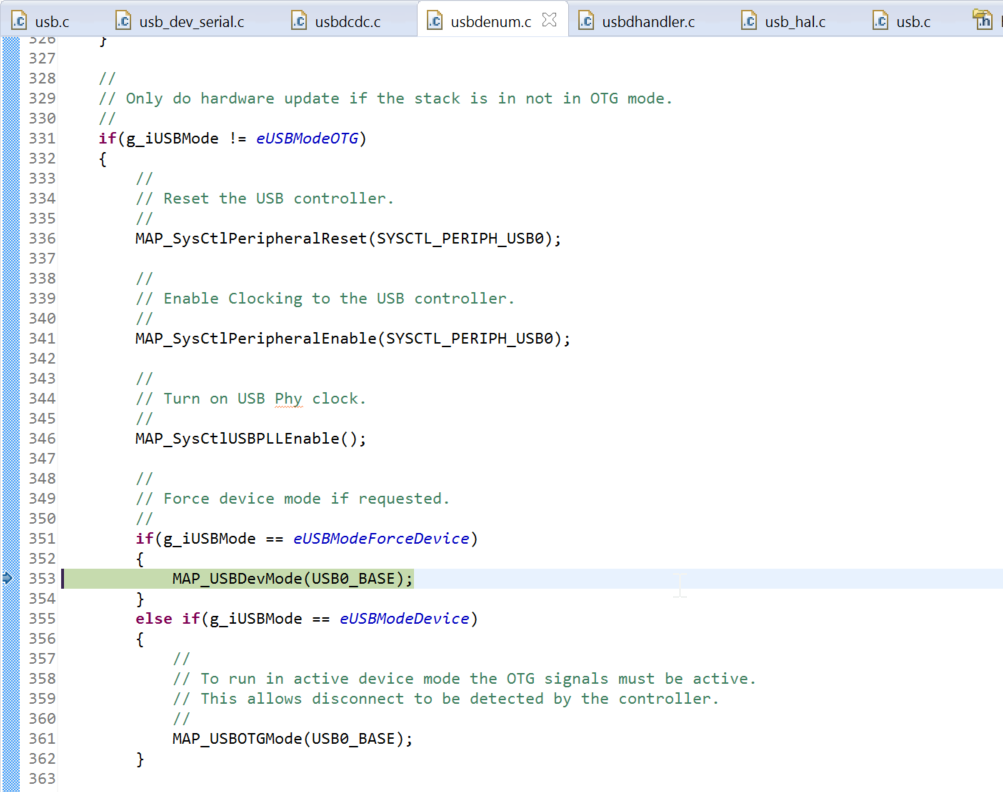Other Parts Discussed in Thread: C2000WARE
Hello,
This is about the problem related in the following post but the discutions was locked! (why ???)
e2e.ti.com/.../2184780
The problem was about the USB device disconnect event which is never received.
The problem was transmitted to an engineer, but we don't have any news today.
The C2000ware v01.00.02.00 is available since some day.
If somebody can say me if this version correct this problem?
If no, is somebody can work on it? Because we are in production phase now, and this problem is very blocant for us.
Thank
Regards


